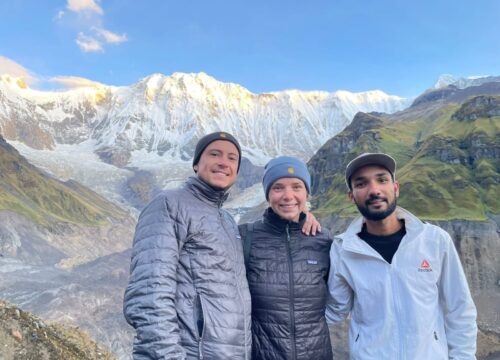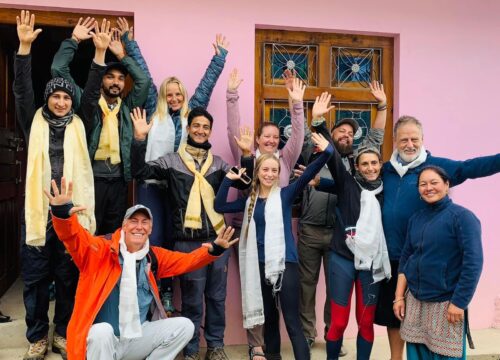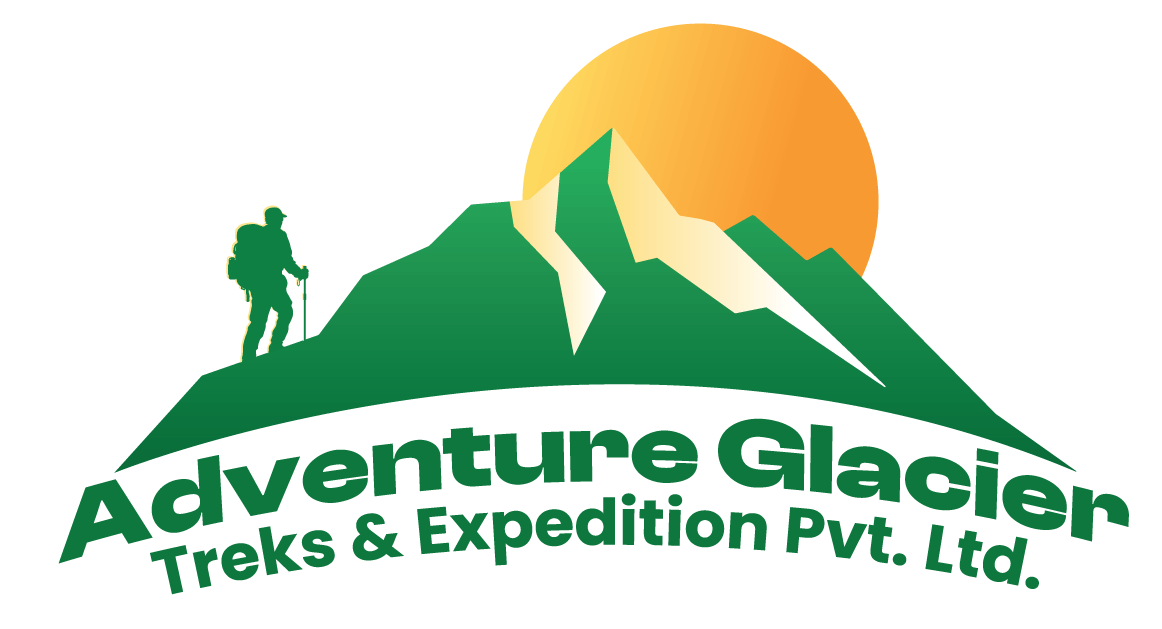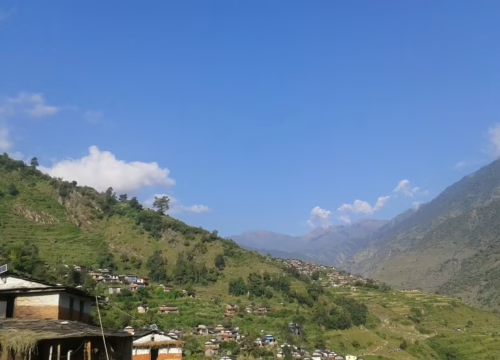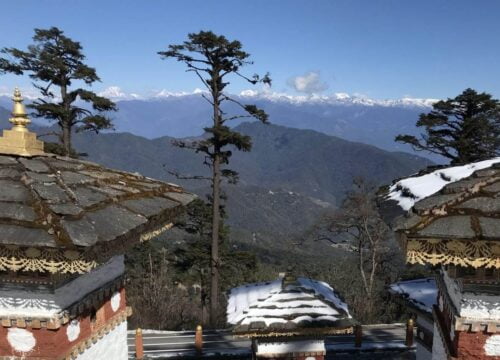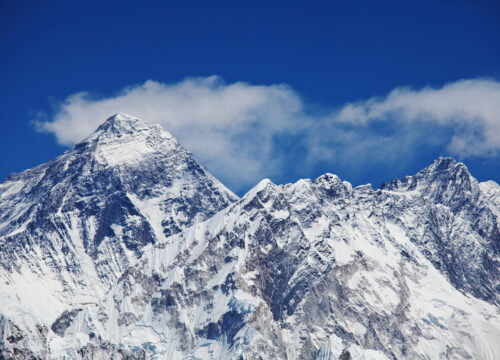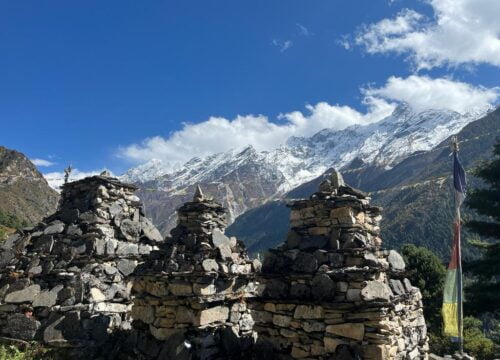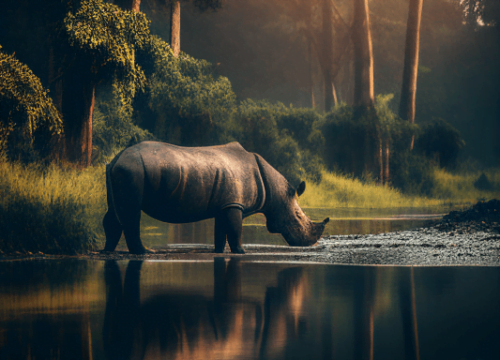Annapurna Base Camp Trek – 12 Days
Trip Overview
Annapurna Base Camp trek is among the most enchanting trekking paths found in the heart of the Annapurna region. This trekking experience provides a combination of stunning natural landscapes, rich cultural encounters, and thrilling adventures. You can witness several great peaks, such as Annapurna I (8,091m), Machapuchare (6,993m) and Dhaulagiri (8,167m), which offer you stunning views and a sense of awe. These peaks make the scenery even more stunning as you travel deeper into the Annapurna region. Moreover, while you travel deeper via dense rhododendron forest, terraced fields and rough mountain landscape. Once you travel into the heart of ABC, you will identify the unique traditions of the Gurung people, diverse wildlife and the peaceful lifestyle of mountain communities.
One of the key features of the trek is the chance to engage deeply with the local culture of the region. To reach Annapurna Base Camp, you need to cross traditional Gurung and Magar villages. While entering those villages, the people living there warmly welcome you and invite you for a delicious dinner. The Annapurna Base Camp trek is not just about hiking; it is a journey to interact and learn about their culture and experience new things.
This trek is designed for anyone who wishes to experience the stunning scenery of the Annapurna region. If you’re looking to enjoy the sunrise, this location could be the perfect choice. By standing in the Annapurna region and witnessing all the surrounding peaks, you can experience a true moment of awe.
The 12 days Annapurna Base camp trek at Adventure Glacier gives you a full of unforgettable experience and a deep connection with nature, culture, and adventure. To visit the places as per the itinerary takes around $800 to $1,500 per person. This price includes all the necessary permits, accommodations, meals, a well-trained guide, porter service and transportation (grounded as well as flight).
What sets this hike apart is not only the breathtaking views but also the feeling of achievement and connection you experience. During the journey from Kathmandu to Annapurna Base camp and back to Pokhara, you will experience various things and meet different local people who can make some special memories that you cannot forget for a lifetime.
The best seasons for trekking to Annapurna Base Camp are spring (from March to May) and autumn (from September to November). During these times, the weather conditions are suitable, the flowers are blooming, witness the breathtaking mountain views, and the overall trekking experience becomes truly enjoyable and memorable. Make sure that you have hiking clothes, trekking boots, gloves and a sleeping bag for the trek to Annapurna Base Camp.
Trip Itinerary
Your trek to Annapurna Base camp begins from Kathmandu (the capital city of Nepal) after you reach TIA (Tribhuvan International Airport). When you arrive at the airport, our staff will warmly welcome you. Subsequently, you will be moved to our tourist standard hotel located in Kathmandu (1,400m). Once you reach the hotel, you can relax there and prepare for the brief session about the trek in detail format. Moreover, you will also be provided with a full description of the gear you need, safety measures and important guidelines for a smooth and great trekking experience. If you arrive early in Kathmandu and have time to explore the sites, you are free to visit and have a great experience. During the night, you will eat a delicious meal with us and enjoy it. Along with it, there will be a brief introduction to our crew. Furthermore, you can also prepare for traveling through — from Kathmandu to Pokhara, then from Pokhara to Ghorepani and Annapurna Base Camp. After that, you will return via Dovan and eventually reach your final destination, Pokhara in the upcoming days.
- Accommodation: Tourist Standard Hotel in Kathmandu.
Begin your journey through a scenic drive to Pokhara (822m) early in the morning. Pokhara is often referred to as the entrance to the Annapurna area. While going to Pokhara, you can witness the Trishuli River, great hills and valleys, and a glimpse of mountains like Manaslu and Annapurna. The trip lasts approximately 6 to 7 hours to arrive in Pokhara. Upon arriving in Pokhara, you will check into the hotel and unwind there. You do have enough time so you will explore the picturesque Phewa Lake and a lively part of town near the lake.
- Highlights: A scenic journey unveils the tranquil beauty of Pokhara.
- Accommodation: Hotel in Pokhara.
This day, you will travel to Nayapul, known as the beginning point of the Annapurna Base Camp trek. From there, you will hike alongside the Burundi River. After passing the river, you have to go through a charming village and lush landscape to reach Tikhedhunga near Ulleri, which can take around 3 hours. This village is one of the picturesque villages that is surrounded by layered fields. Before reaching here, you will witness the local culture, animals, mountain glimpses and daily lifestyle of the local people.
- Highlights: Picturesque journey to Nayapul and a smooth initiation to trekking.
- Trek Duration: 3 hours
- Distance: 6 km.
- Accommodation: Tea house in Tikhedhunga.
This trek may be challenging for you because you have to trek up a steep climb to reach Ulleri. This place is popular due to its 3,000 stone steps. You have to climb around 3,000 stairs to reach Ghorepani. While climbing, you can rest at many different spots. Before reaching Ghorepani (2,860m) near Poon Hill, you have to cross the dense rhododendron forest, which offers you a serene atmosphere, colorful flowers and the gentle voice of nature. Once you arrive at Ghorepani, you will witness the breathtaking views of the Annapurna and Dhaulagiri ranges.
- Highlights: Breathtaking scenery and the difficulty of the Ulleri staircases.
- Trek Duration: 5-6 hours
- Distance: 9 km.
- Accommodation: Tea house in Ghorepani.
On this day, you have to wake up early in the morning for a hike to capture the breathtaking view of sunrise on Poon Hill - one of the best spots in the Annapurna region. Additionally, you will be able to take in the breathtaking sights of Mt Dhaulagiri, Annapurna I, and Machhapuchhre (Fishtail). While witnessing the mesmerizing views of mountains, our guide will be providing the detailed information of the mountains as you observe. Following that, enjoy breakfast at the tea house and prepare for the trek ahead. Your route will lead you to Tadapani (3,210m) as you traverse the vibrant rhododendron forest. This place is a serene village that is surrounded by these grand peaks. While trekking to Tadapani, you will observe colorful birds and wildlife, waterfalls and beautiful small villages.
- Highlights: Stunning sunrise vistas from Poon Hill and the serene charm of Tadapani.
- Trek Duration: 7 hours
- Distance: 12 km.
- Accommodation: Tea house in Tadapani.
You start your journey by enjoying breakfast early in the morning. You will go downwards via the dense forest to reach the Gurjung River valley. After that, you need to climb to arrive at the destination (Chhomrong) - a big Gurung village located at the top of the hill. This village offers panoramic views of Annapurna south and Machhapuchhre (Fishtail), which gives a sense of awe. Chhomrong (2,170m) is also considered the perfect spot for relaxation and acclimatization.
- Highlights: Scenes created by Annapurna South and the cultural charm of Chhomrong village.
- Trek Duration: 6 hours
- Distance: 10 km.
- Accommodation: Tea house in Chhomrong.
After you spend the night at Chhomrong, you will descend to reach Chhomrong Khola, which offers scenic beauty, peaceful natural vibes and a refreshing break. After you visit Chhomrong Khola, you will cross the high suspension bridge before climbing to Sinwa (a tranquil environment and a popular spot for trekkers). You have to cross a bamboo forest through Sinwa to reach Dovan (2,600m) - a peaceful village situated at the Modi River valley.
- Highlights: Calm woodlands and the peaceful charm of Dovan.
- Trek Duration: 5 hours
- Distance: 8 km.
- Accommodation: Tea house in Dovan.
The path climbs upward through dense woodlands. During the paths, a streamlined waterfall can also be observed with massive mountain views all around. From there, when you climb higher, you can find the ground is getting rough with rocks. Additionally, you will also identify the cold streams made from melting ice. After a long hour of trek, you will reach Deurali (3,230m) - a small village with stunning mountain scenes. Once you reach there, you will witness a closer view of the great Himalayas, glacier rivers and waterfalls, and peaceful and remote vibes.
- Highlights: Streamlined waterfalls, rough terrains, and scenic mountain views.
- Trek Duration: 6 hours
- Distance: 9 km.
- Accommodation: Tea house in Deurali.
This is the moment you've all been anticipating. You will arrive at the Annapurna Base Camp, the highlight of this expedition. You will hike along the trail of the Modi River Valley. During this trek, you will witness the jaw-dropping scene of Mt Machhapuchhre and Annapurna South. After hiking for many hours, you will finally reach the most awaited point, i.e., Annapurna Base Camp (4,130m). Once you reach the base camp, you will find the great peaks and glacier moraines surrounding you which can be an unforgettable moment for you. You will spend the evening taking in the breathtaking, incredible sights.
- Highlights: Positioned at the foot of the Annapurna massif, surrounded by panoramic mountain vistas.
- Trek Duration: 4-5 hours
- Distance: 7 km.
- Accommodation: Tea house at Annapurna Base Camp.
In the morning light, you will experience the breathtaking sight of the sunrise. Once you've enjoyed this moment, prepare to proceed on your journey to Dovan. You need to trek downhill to reach Dovan (2,600m). Along with Dovan, you also need to trek the same way you hiked earlier, i.e., via Modi Khola Valley. While returning through this valley, the views you see will look even more fresh and different than going to the Dovan. Additionally, you will miss the scenes created by great peaks at Annapurna Base Camp (ABC).
- Highlights: Sightings of the dawn and the peaceful ride through the valley.
- Trek Duration: 7 hours
- Distance: 12 km.
- Accommodation: Tea house in Dovan.
To arrive at the Sinuwa (2,170m), you need to descend via dense forest and parallel to the Modi River. As you travel towards Sinuwa, you'll encounter a tranquil forest, a bamboo village, and a pathway of stone steps. In Sinuwa (the serene village situated at the top of the hill), you can enjoy the best atmosphere.
- Highlights: Serene woodlands and the charm of Sinuwa.
- Trek Duration: 6 hours
- Distance: 10 km.
- Accommodation: Tea house in Sinuwa.
This day signifies the completion of the journey. On this day, you will trek to Jhinu by crossing lush forests, stone steps and suspension bridges. Upon arriving at this spot, you can relax in natural hot springs. A few hours later, you will eat lunch and drive to Pokhara which is the end point of this journey. Feel relaxed and reward yourself with a warm shower and a tasty meal at one of the numerous restaurants in Pokhara. Celebrate the end of the journey alongside your team. For the last time, remember the majestic mountains, dense forest and the experience you gained from the trek.
- Highlights: Soaking in thermal springs and the picturesque journey back to Pokhara.
- Trek Duration: 2 hours
- Drive Duration: 3 hours.
- Accommodation: Hotel in Pokhara.
FAQs
Annapurna Base Camp Cost 2025 and 2026
| No. of Pax | Starting Price |
| 1 | USD 999 |
| 2-3 | USD 888 per person |
| 4-6 | USD 777 per person |
| 6+ | USD 699 per person |
Why Choose Adventure Glacier Treks?
- Expert Guides: Our experienced guides have successfully summited Everest and possess a deep understanding of the area.
- Safety First: We emphasize getting adjusted to the environment and ensuring safety for a successful expedition.
- All-Inclusive Packages: We manage all the specifics, from permits to transportation.
- Small Group Sizes: Experience tailored support and a sense of community within a small group setting.
Book Now
Price Includes
- The package includes airport pick-up and drop-off, two nights’ accommodation in Kathmandu, and two nights in Pokhara at tourist-standard hotels.
- The trekking package includes ground transportation, necessary permits and entrance fees, a professional guide, porter(s), and all their expenses, including insurance and equipment, as per the itinerary.
- Accommodation will be provided at lodges along the trekking route.
- Enjoy three meals each day: breakfast, lunch, and dinner, accompanied by a delightful cup of tea or coffee.
Price Excludes
- Beverages such as beer, wine, and cider are not included in the trekking package.
- Typically, 10% of the total amount paid is not included in the package.
- Travel insurance is not included in the package and must be arranged by trekkers.
- Personal or natural expenses such as laundry, phone calls, snacks, and other personal items are not included in the package.
- Meals in Kathmandu and Pokhara are not included in the package, except for daily breakfast.
